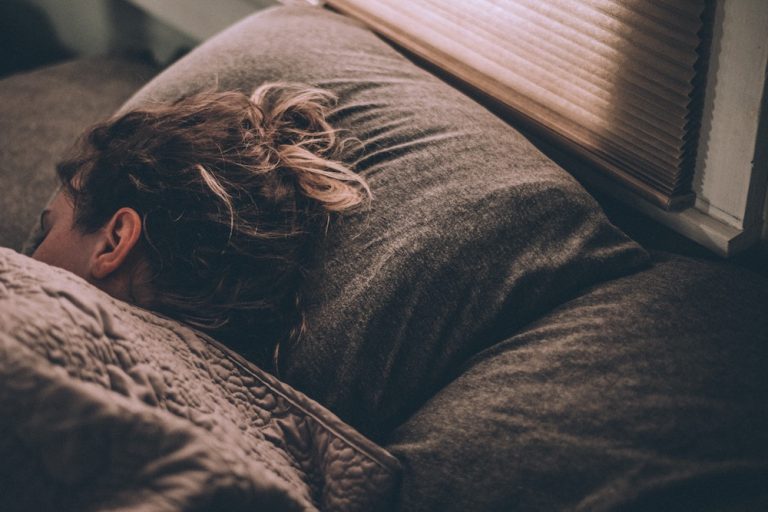Fitness trackers, sleep and accuracy

Fitness trackers, sleep and the questions of accuracy they raise were the subject of a recent article written by Hugo Mercier, CEO of Dreem, published in The Huffington Post.
Why are fitness trackers inefficient in measuring sleep?
If you’re at all interested in your health, it’s likely you’ve joined the 20 percent of Americans who’ve incorporated fitness trackers into their daily ensemble. From monitoring steps and daily activity to sleep, an ever-growing number of devices are tracking and analyzing our body’s data in an effort to make us better.
But how good is this tracking? Despite noble intentions, the scientific reality is that much of the data these fitness trackers provide is insufficient and inaccurate. In turn, they are not as effective as they promise.
This is especially true when it comes to sleep. Sleep scientists have looked at sleep wearables, like Fitbit and Jawbone, with skepticism. For good reason. While the devices claim to monitor and help you sleep, scientific precision isn’t guaranteed.
Here’s why. Sensors in these devices measure acceleration, duration, intensity, frequency, and patterns associated with our heart rate and movement. Looking at tossing and turning in a night versus what’s going on inside our bodies don’t give us much depth.
It’s much more than just tracking
Current fitness trackers on the market are made up of advanced technology and sensors. They are able to monitor a wide range of body functions. However, they don’t cut it when it comes to sleep. Why not? Sleep trackers use actigraphy, which measures movement at a very high level. Precisely translating these movements into sleep patterns is tricky. It is even more akin to guesswork, not something you should build your healthy living plan around.

Right now the hardware that can track sleep accurately — mainly the EEG reader — has long been available in large format labs. So due to challenges tied to affordability, comfort, and ease of use, tracking movement has been the default way to assess sleep, even though it doesn’t really map to results.
You have the results — now what?
It’s one thing to track your behavior but to truly improve your health, shouldn’t a product do more for us? Sleep in the context of this “self-betterment” model has to deliver on a lot more than just tracking or monitoring based on data that is inaccurate.
The hard truth about these wearables is that fitness trackers do very little to change our passive behavior. The current market is flooded with fitness trackers that tell you that you walked three miles or slept 6.2 hours. But are there devices that do more to inspire action or do something that will actually impact your sleep?
Fitness trackers and sleep quality
To answer that question, one needs to understand that the only accurate way to monitor your sleep quality is by measuring your brain activity or EEG (electroencephalogram). And this is not a recent development. These standard different sleep stages have been long established by the American Academy of Sleep Medicine. They are based on your EEG.
Recent advances in technology can power real-time monitoring and analysis of your brain activity. We should now be able to do a better job to track sleep accurately and improve sleep habits. Plus, you probably don’t need a fitness tracker analyzing your sleep to confirm what normal body cues — dark circles, yawning or inclination of hitting the snooze button repeatedly — are already hinting at: you’re tired and not getting enough winks most days of the week.
So how can you sleep better? Use your brain (not a fitness tracker)
The bigger question about products that are currently on the market is: How does monitoring impact sleep quality? We know that simply being aware of it doesn’t get us anywhere. So, is there anything useful that these devices can actually do better than us?
Technology has rapidly helped improve our lives in a variety of ways. However, we continue to sleep the way we did about 10,000 years ago. Companies like mine (Dreem) are working on how to actually improve sleep quality and find ways to apply technology to read brain waves accurately and actively. Through targeted and precise sound, we’re taking science from the lab, placing it into a consumer device that can stimulate brain rhythms to induce and improve deep sleep (the most critical stage).
Remember those EEG sensors and lab equipment I mentioned before? They’re being meticulously engineered into the size of a comfortable headband — to actively influence and encourage our brain to get better quality sleep. They’re active, work in real-time and can pinpoint all of your brain waves, from alpha, beta, theta, gamma, to Delta.
Although we’re asleep, our brains are far from being inactive throughout the night, it’s chock-full of insight into how our bodies function and tapping into our brain waves is the only way to understand and improve upon our sleep. The troubling disconnect remains that trackers over promise. The information they do deliver is relatively futile. If you want to turn that data into tangible results — best put that tracker to rest. For good.
By Hugo Mercier, CEO of Dreem
A final word on fitness trackers and sleep
Since the publication of this article, fitness trackers and sleep have appeared in the public eye once again. This time linking fitness trackers and sleep with orthosomnia. Studies have suggested that the unreliable nature of the sleep data provided by fitness trackers can lead to unwarranted sleep stress which in turn makes it more complicated to sleep.
Discover your sleeper profile with this sleep test
Start



